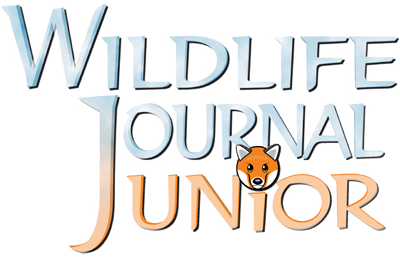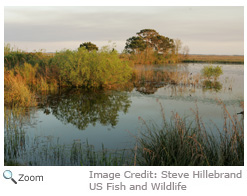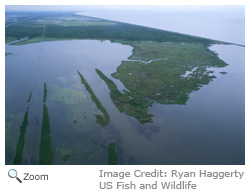Rest Stop
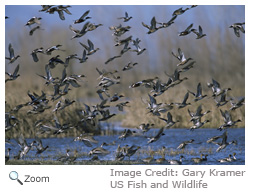 Wetlands are often used as resting places for migrating birds. Other animals, like fish and crabs, lay their eggs in wetlands. Young fish and crabs spend their early life in wetlands, because there is plenty of cover where they can hide from predators. When they grow older, they move out to more open waters.
Wetlands are often used as resting places for migrating birds. Other animals, like fish and crabs, lay their eggs in wetlands. Young fish and crabs spend their early life in wetlands, because there is plenty of cover where they can hide from predators. When they grow older, they move out to more open waters.
Disappearing Wetlands
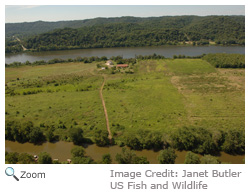 About half of the wetlands that were in the United States two centuries ago are now gone. Most were drained and used for farmland or filled in so roads and towns could be built on them. This development has put a strain on species that depend on wetlands for survival. It is estimated that close to 35 percent of the animals and plants on the U.S. endangered or threatened species list depend on wetlands for at least part of their life cycle.
About half of the wetlands that were in the United States two centuries ago are now gone. Most were drained and used for farmland or filled in so roads and towns could be built on them. This development has put a strain on species that depend on wetlands for survival. It is estimated that close to 35 percent of the animals and plants on the U.S. endangered or threatened species list depend on wetlands for at least part of their life cycle.
Variety is the Spice of Life
Not all wetlands are the same. They all have unique characteristics!
Bogs
Fens
Pocosins
These three types of wetlands all have peat in them, but they are different in many ways.
Prairie Potholes
Vernal Pools
When it rains, these wetlands come to life.
Freshwater Marshes
Cattails, bulrushes and lots of wildlife make freshwater marshes dynamic ecosystems.
Swamps
These forested wetlands are often found near rivers and lakes.
